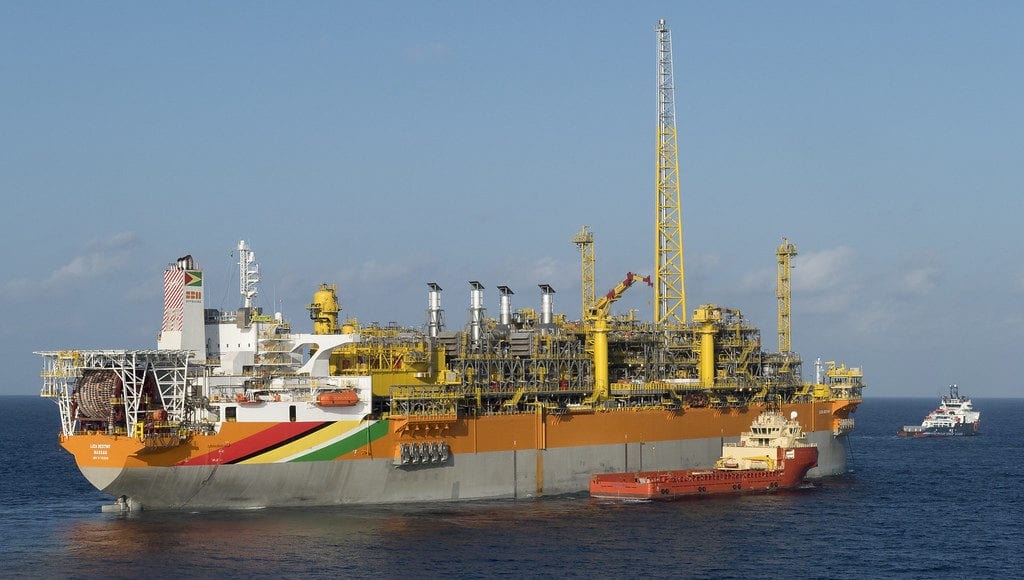ExxonMobil have just announced its commencement of production at Guyana’s Second Offshore Development from the Liza Unity vessel, which has been hugely welcomed by the country’s Government.
The Liza Unity FPSO (floating, production, storage, and offloading) vessel is set to reach its target of 220 000 barrels of oil per day later this year – bringing Guyana’s production capacity to more than 340 000 barrels per day, which includes the more than 120 000 barrels per day capacity at the Liza Destiny FPSO.
Pointing out that the increased total daily capacity of oil is good news for the Caribbean nation, with Natural Resources Minister, Vickram Bharrat, saying: “The Government of Guyana and citizens welcome the operation of this new FPSO to sustainably extract and manage the country’s oil and gas resources, which will further enhance earnings from this sector to drive Guyana’s infrastructure development and improve the delivery of services to all citizens.”
Keeping abreast with the Local Content Secretariat and the Natural Resources Fund, the Government of Guyana has mandated the Ministry of Natural Resources to coordinate and work closely with international partners, local regulatory agencies, and key stakeholders within the petroleum sector to ensure the sector performs optimally in keeping with internationally recognized best practices. The Government will be taking the necessary steps to ensure that all Guyanese benefit from the earnings derived from the petroleum sector.
The Ministry of Natural Resources says that it will continue to work with ExxonMobil which will bring at least four FPSOs into operation to produce more than 800 000 barrels per day from the Stabroek Block by the end of 2025. In addition, Payara, the third project in the Stabroek Block, is expected to produce approximately 220 000 barrels of oil per day using the Prosperity FPSO vessel, which is currently under construction.
The Liza Unity - the world’s first FPSO to be awarded the SUSTAIN-1 notation by the American Bureau of Shipping in recognition of the sustainability of its design, documentation, and operational procedures - will be able to store around 2 million barrels of crude.











